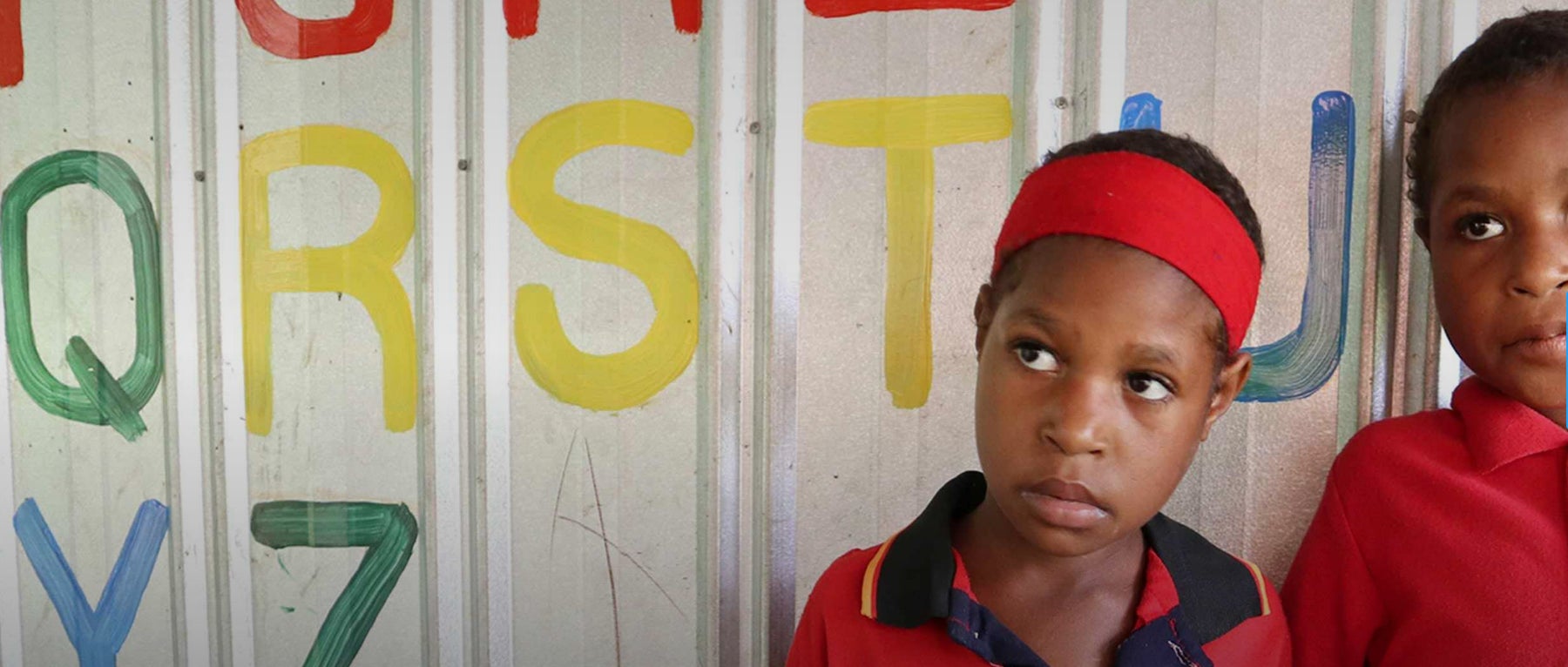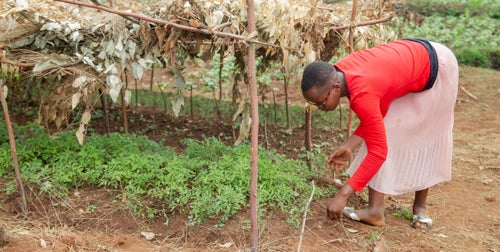How an amazing role model can change a young person's life.
Twin-sisters Joyce and Joycelyn are precisely what you’d expect from two nine-year-old girls. They are lively, playful and completely unable to sit still while UNICEF Australia staff take a photo of them.
However, the sisters were both held back from starting school for the first few years of their lives.
Joyce has a disability which causes intellectual and physical developmental delays. The twin’s parents held back the girls due to fear that Joyce would be excluded, and they didn’t want to send one twin without the other. Because of this, Joyce and her twin sister Joycelyn began their education very late.
Unfortunately, it’s all too common for children with disabilities to be left behind in schooling. They are still one of the most marginalised and excluded groups in Papua New Guinea (PNG), where the twins live.
However, UNICEF is working to change this. Through a partnership with the Ginigoada Foundation, UNICEF is supporting communities to establish and run Inclusive Early Childhood Development (IECD) Centres so all kids can learn and grow together. The team in PNG has trained facilitators in play-based learning for young children and to be able to screen, identify and refer young children with disabilities to local health centres.
So far, 39 children with disabilities are enrolled in 41 IECD centres in remote parts of Morobe Province, PNG. The program, which is supported by generous Australian donors and the Australian Government through the PNGAusPartnership, has truly transformed the lives of children like Joyce.
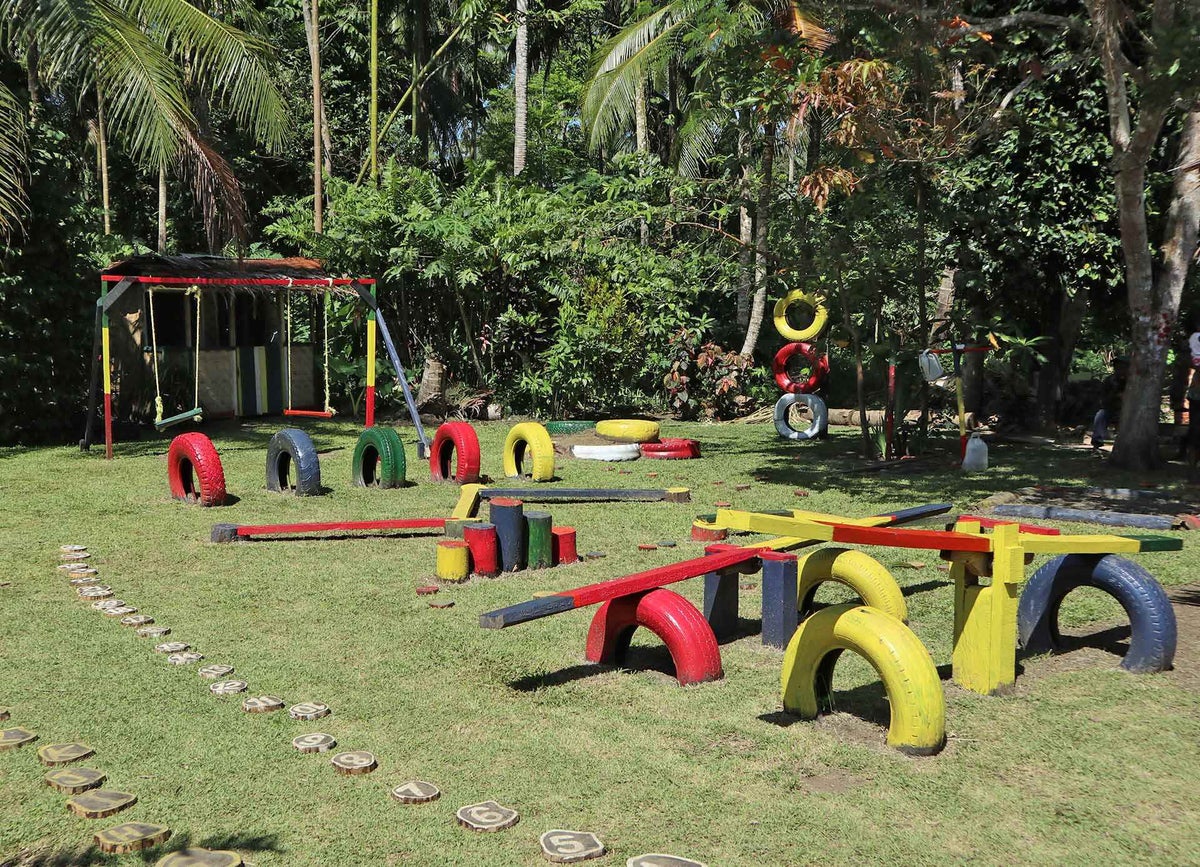
The two sisters now attend one of these centres, and it was here that Joyce met her teacher and role model, Rueben.
Joyce and teacher Rueben share a special bond. As a child, Rueben contracted polio which caused lifelong paralysis in his right leg. This means he must use crutches to get around.
"The first time I saw Joyce, I thought of myself when I was young and the struggles I dealt with as a disabled child," he says. "This motivates me to help her as much as I can." By playing and singing with Joyce, she is now able to recite numbers and the alphabet, move her fingers, and squeeze her hands.
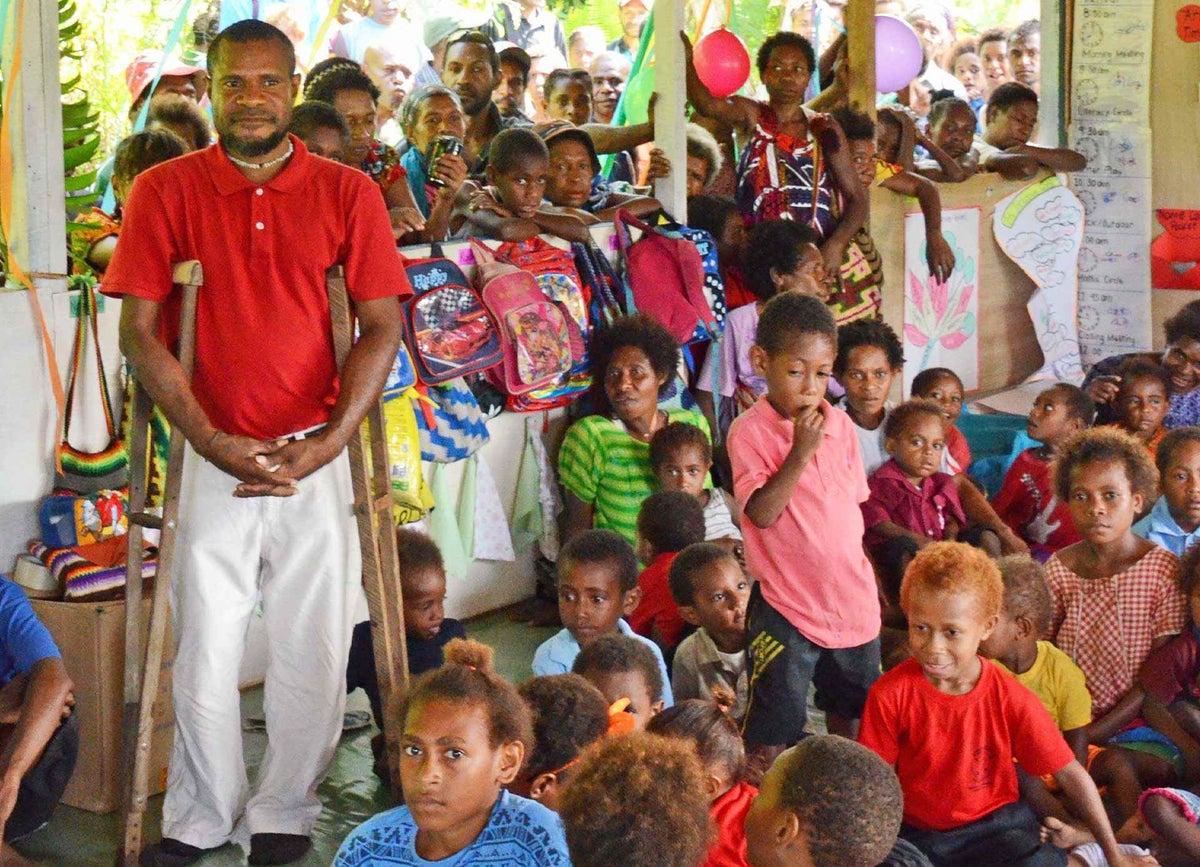
Before teaching at the IECD centre, Rueben was not doing much - "I was just roaming around the community all day, basically doing nothing". He now teaches over 30 enthusiastic children.
The centre changes more than just the lives of the children who attend.
For other children with disabilities in the community, Rueben thinks he can be a role model: "If they see I can do it, they will know they can too."
For Joyce’s mum, having a role model that her daughter can relate to is important. She is inspired by Ruben because, "the teacher also has a physical disability and if her teacher has a disability, [I feel that] the teacher is like your brother with a disability".
For Joyce, attending a centre where she feels accepted and loved has been great not only for her education but for the development of her social skills and confidence. "I have seen a huge change in my child, she can sing and even recite her alphabet and her numbers because of this Inclusive Early Childhood Development centre," says Tau, who is delighted that both of her daughters are able to access inclusive education.
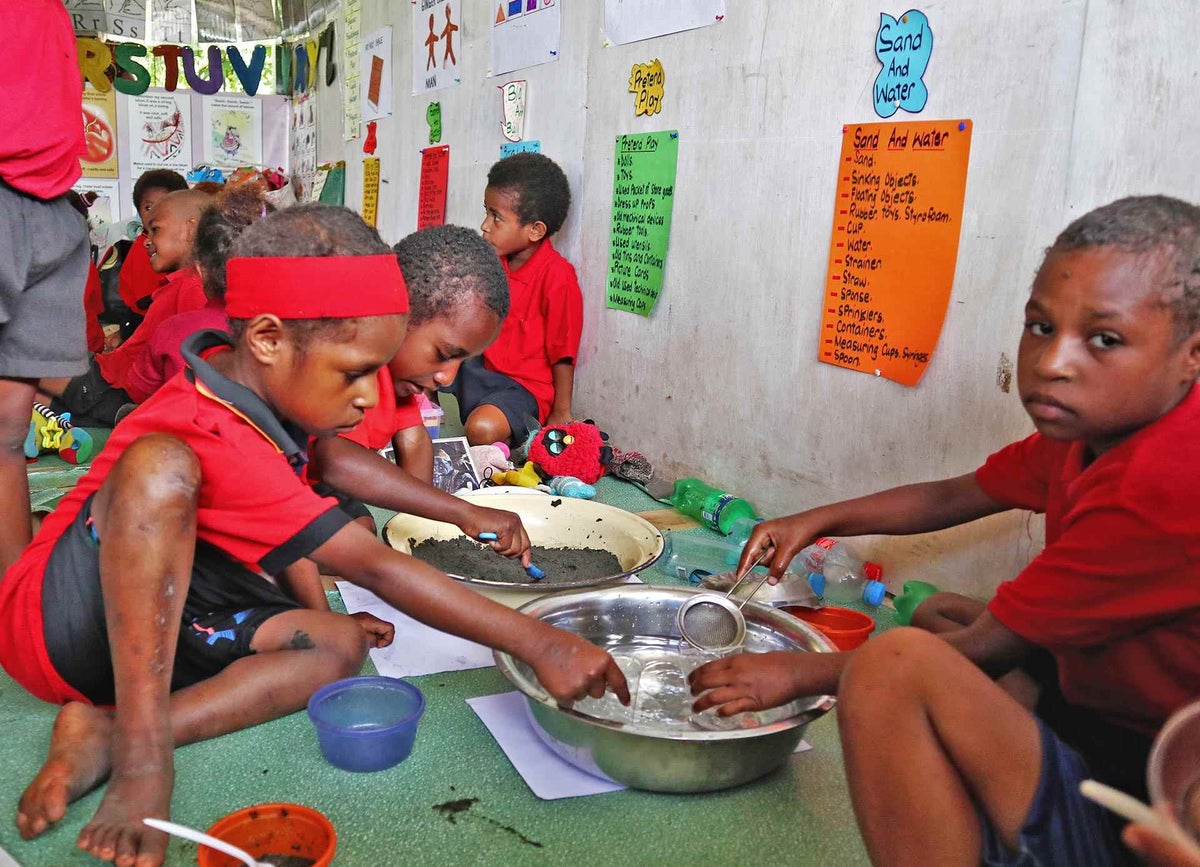
Inclusive early childhood development centres, like Hobu, can be life-changing for every child, especially for children who would normally be excluded due to their disability.
Related articles
Stay up-to-date on UNICEF's work in Australia and around the world



